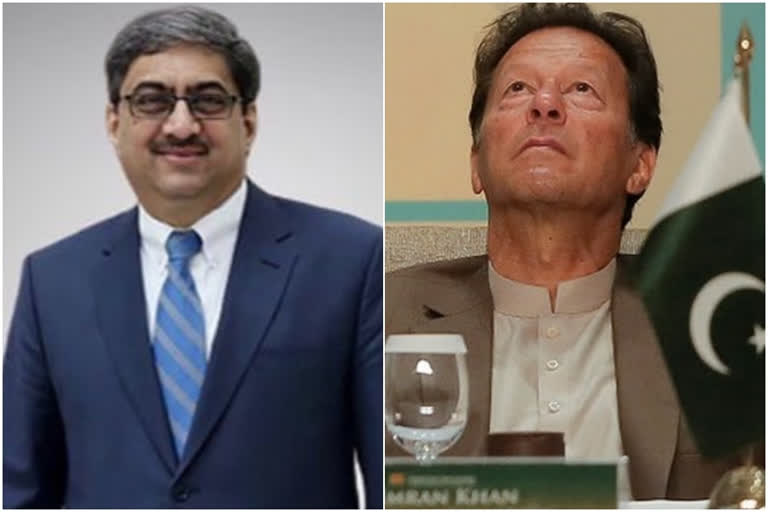New Delhi: Amid 'signs of thaw' in the relations between India and Pakistan, Pakistan’s recent move to resume trade ties with India followed by a quick U-turn on imports of sugar and cotton from India, took political strategists by surprise.
ETV Bharat had a chat with former Indian High Commissioner to Pakistan Gautam Bambawale to shed more light on the issue.
Chandrakala Choudhury (CC): The Pakistan government decided to resume trade ties with India and later withdrew it. Why this flipflop? What is your take on this?
Gautam Bambawale (GB)- The flipflop became necessary because some parties allied to Imran Khan’s PTI put their foot down on importing items from India. Pakistan will now import these commodities from other countries at higher prices. I would not term these developments dramatic because such flipflops by Pakistan is commonplace.
CC: Pakistan has said things can't be normal unless India reverses the Article 370 decision. Do you think this is another tactical ploy by Pakistan?
GB: This demand is not new. Many analysts had expected this and so we are not surprised at all.
ALSO READ: Imran writes to PM Modi; says creation of 'enabling environment' imperative for dialogue
CC: Amid the much-hyped talk or assumption of easing the relations between the two neighbours, do you think a dialogue possible?
GB: Dialogue will be possible only when both sides want it, have confidence in the process and trust that any decisions which may be arrived at are adhered to and implemented sincerely.
CC: Was there a political misreading by the Imran Khan-led team on the change of decision on resuming trade with India? Under whose pressure did Pakistan change its decision?
GB: Please do remember that the current attempts were spearheaded by the Pakistan Army. First, was the agreement between the DGMOs of India and Pakistan to revive peace on the Line of Control. Thereafter, the Pakistan COAS made his comments at an international conference/seminar proclaiming the need for peace and cooperation between India and Pakistan. So I would say India should continue to pursue that track of discussion.
READ: Pakistan placed in 'poor' category in freedom of expression: Report
CC: What would be the political and foreign policy repercussions on India? Pakistan seems to be compromising its interest making Kashmir its core issue. What, do you think, would be the consequences on South Asia if Pakistan continues such gesture?
GB: The consequences have already been evident over the past few years. India’s bottom line is that Pakistan must end all terrorism aimed at us from territory under its control. Only then can relations be expected to improve.
CC: On one hand, Pakistan decided not to resume trade with India, there, on the other hand, China agreed to import Pakistani meat after lifting restrictions. Do you think this is another move by China to belittle India in the region?
GB: This is an unimportant development. Don’t place any significance on it.
India has time and again maintained that it desires a friendly relation with Pakistan, an environment free of terror, hostility and violence. However, India highlights that the onus to create such an environment is on Pakistan.
Read: Pakistan rejects proposal to import Indian cotton



